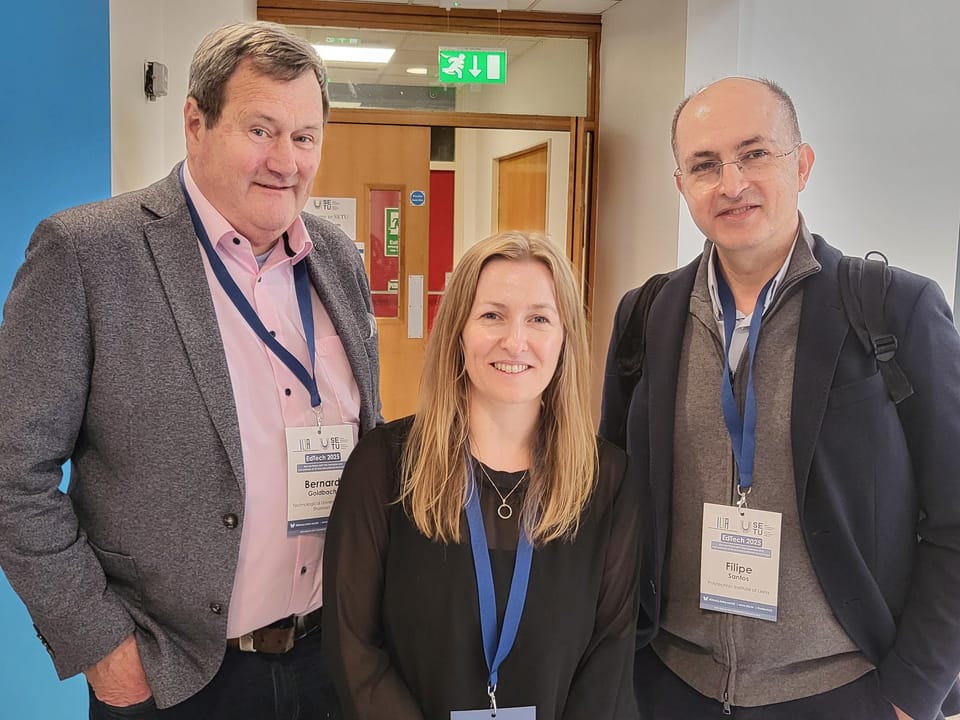Better Workflow when Digitally Literate

Even before I attended #edtech25 on the campus of the Southeast Technological University, I knew ways I could achieve better results in my workflow as I upgraded my digital literacy. This is a core precept of the AI for Productivity Workshops that I deliver with Larry G. Maguire and Frances O'Donnell. I showed the inside view of part of our process during a 15 minute presentation at edtech2025 in SETU.

In aggregate, we have more than 70 years of experience we can draw upon as educators. Through the years, we have seen individuals with high levels of digital literacy enjoying enhanced productivity. These digitally aware people can seamlessly navigate digital tools, platforms, and systems. They can troubleshoot issues, manage information efficiently, and automate routine tasks, all of which reduce cognitive and operational load. We have extracted case studies from our experience and integrated them into hands-on workshops for students who need to learn how to accomplish tasks faster.
Part of the teaching and learning that we have developed for third level students, for industry, and for the Regional University Network of Educators will help people evaluate online information critically and to make informed decisions. This improves the quality and the speed of their work. This skill is particularly important in knowledge-based professions where distinguishing reliable data from misinformation is essential to effective task execution.
Our training sessions build an awareness of emerging automations inside the Microsoft 365 suite, an understanding of AI-driven systems, cloud collaboration tools, and project tracking apps. RUN-EU students will learn Practical Workflows with AI during a five credit hour course that starts in September 2025. The peer learning embedded in this course will position students to innovate within their roles rather than simply repeat manual routines.
I will explain how we improve practical workflows with AI as I release weekly updates about our new Blended Intensive Programme (BIP).
Our BIP graduates will be able to leverage digitally transformative processes. They will enhance their actual intelligence while talking to several AIs as they earn their AI Skills Cards.

Some references used in the RUN-EU course:
- Ng, W. (2012). "Can we teach digital natives digital literacy?" Computers & Education, 59(3), 1065–1078.
- Eshet-Alkalai, Y. (2004). "Digital Literacy: A Conceptual Framework for Survival Skills in the Digital Era." Journal of Educational Multimedia and Hypermedia, 13(1), 93–106.
- van Deursen, A. J., & van Dijk, J. A. (2014). "The digital divide shifts to differences in usage." New Media & Society, 16(3), 507–526.
Comments ()